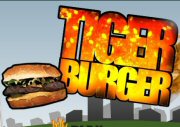This is from Anne Hathaway's Facebook page (I saw it today):
"What else can I say about the movie that changed my life? Thank you The Devil Wears Prada and happy 10 year anniversary!! (don't let this make you feel old- good style is eternal xx)".
I think ten year anniversary is a compound name. Using this pattern, I wrote sentences as below, although I strongly feel that I should have placed dash(s) among the words of a compound. However, consider:
- a two day infant (to imply an infant whose age is two days)
- a four month marriage (to describe a marriage that lasts four months)
- a three side negotiation ( to imply a negotiation in which there are three different groups talking)
- an eight core CPU (to describe a an Octa-Core CPU)
- three line road ( to describe a road in which cars moving in three lines, but in the same direction )
- three wheel vehicles (to classify vehicles which have three wheel)
I have two questions:
Can we always be sure about correctness of such phrases and learn, of course, some exceptions that refute these constructions? Or these constructions are limited to few cases that we should memorize them, for example 10 year anniversary.
If they are compound nouns, shouldn't it include dash(s) (-) among the words ? Personally, I think when this phrases come to being at the first time, they do include dash, but as they become commonplace English speakers omit the dash to facilitate writing the phrase.
It is interesting for me because, in my native language, we construct adjectives by using numbers almost in similar way. I want to organize my mind to accelerate the process of choosing words.



